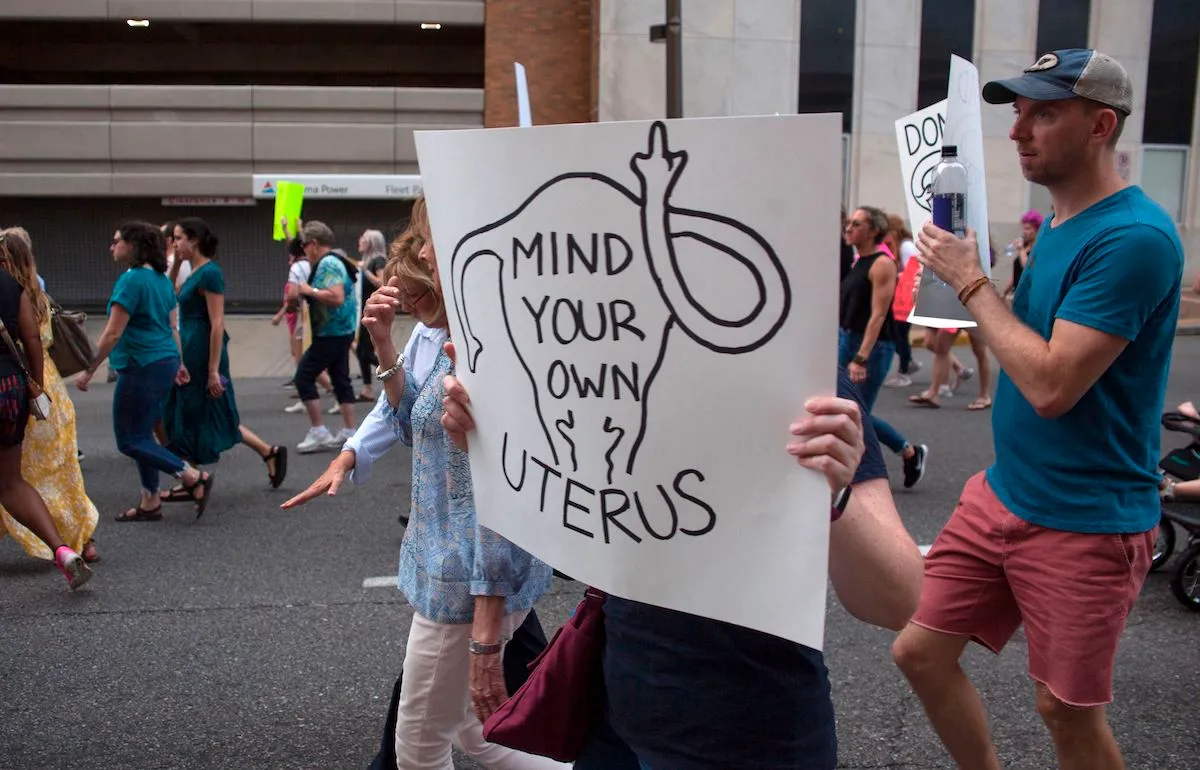Welcome to The Week in Reproductive Justice, a weekly recap of all news related to the hot-button issue of what lawmakers are allowing women to do with their bodies!
Unfortunately, good news around reproductive rights can feel pretty sparse on the heels of Planned Parenthood being forced to give up Title X funding and several states on the brink of losing safe, legal abortion access if proposed bans in those states take effect. Still, speaking of abortion bans and good news, this week, Missouri women and reproductive rights advocates celebrated a federal judge blocking the state’s eight-week abortion ban, literally the day before it would have taken effect.
The bill in question banned abortions at a point in pregnancy when many people still may not even know they’re pregnant, making it effectively a total abortion ban, and allowed for no exceptions for either rape or incest. It’s not as if having exceptions in place would have made the bill somehow less extreme, but their absence certainly highlights the cruel, especially mean-spirited nature of the bill. And, of course, it simply can’t be stated enough that this is exactly the kind of law that kills women and pregnant people, contributing to disgraceful, avoidably high maternal death rates that disproportionately plague states with more abortion restrictions.
This abortion ban in Missouri may be defeated for now, although a state that had previously almost enacted a 15-week abortion ban, and currently has just one abortion clinic in the entire state, almost certainly has more harmful anti-choice legislation and tactics up its sleeve. Meanwhile, lawsuits challenging total or near-total abortion bans signed into law in Alabama, Georgia, and Louisiana remain.
Ohio abortion clinic faces an uncertain future over TRAP laws
You’ll recall that in 2016, the Supreme Court ruled in Whole Woman’s Health v. Hellerstedt that TRAP (Targeted Regulation of Abortion Providers) laws—those messy, medically unnecessary abortion laws that require clinics to either meet ridiculous and costly “safety” standards or shut down—are unconstitutional, placing undue burden on patients seeking abortion care. Yet, despite this ruling, TRAP laws continue to plague abortion clinics in many states, including Ohio, where a law from 2013 requires clinics to have a written transfer agreement with a nearby hospital—an unnecessary requirement that can be literally geographically impossible for some clinics, like one in Dayton, Ohio.
Women’s Med Center in Dayton has previously been allowed to remain open with a waiver from the state Health Department, which, as of this week, has yet again refused to renew the waiver, putting the clinic’s future in jeopardy. Last week, the Ohio Supreme Court ruled in favor of a lower court ruling that had sided with the state Health Department’s refusal to renew the waiver. The clinic’s future will ultimately be decided by a federal judge.
About 90 percent of U.S. counties today lack abortion providers, and we have laws like this to thank for nationwide abortion deserts. TRAP laws may seem innocent, predicated upon and justified by feigned concern for women’s safety by anti-choice politicians, but the reality is that abortion is safe and less likely to result in serious complications than many, if not most, everyday health procedures, rendering transfer agreements with nearby hospitals, hallways that can fit standard stretchers, and so on and so forth not only unnecessary, but dangerous, as they only result in clinic closures.
In the absence of nearby abortion clinics, women and pregnant people seeking abortion will still need access to abortion. Those with the economic resources and ability will travel great distances, including out-of-state, to access abortion care, while those without the resources may either be forced to carry to term, or could potentially resort to unsafe means of terminating their pregnancies.
In other words, this is just more of what we already know: Whether it’s total, all-out abortion bans, stripping women’s health organizations of funding they need to support low-income patients, or in this case, shutting down clinics and creating costly geographic barriers, attacks on reproductive rights will always disproportionately harm poor women and poor women of color especially.
Tune in next week to see what lawmakers will try next in their never-ending mission to derail reproductive justice!
(image: SETH HERALD/AFP/Getty Images)
Kylie Cheung writes about feminism and politics, with a focus on reproductive justice. Follow her on Twitter @kylietcheung, or learn more about her writing at www.kyliecheung.tumblr.com.
Want more stories like this? Become a subscriber and support the site!
—The Mary Sue has a strict comment policy that forbids, but is not limited to, personal insults toward anyone, hate speech, and trolling.—









Published: Aug 30, 2019 09:51 am